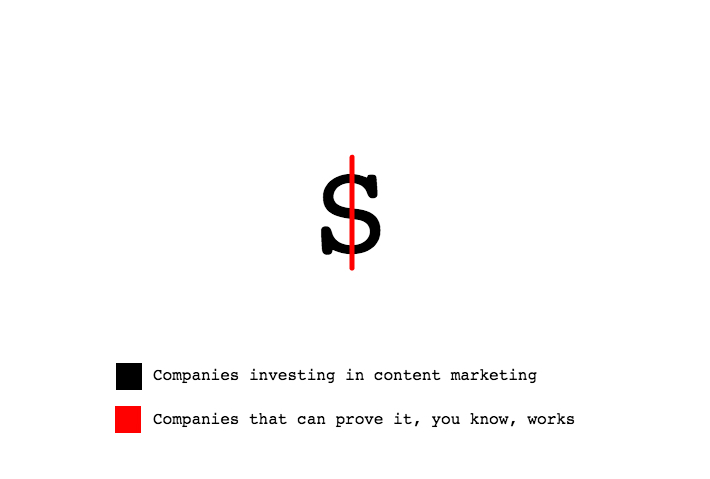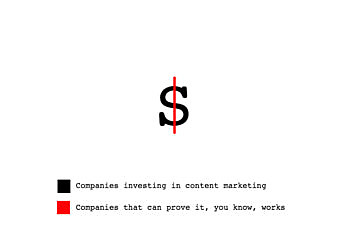There’s a fascinating quote in Mary Meeker’s latest Internet Trends report. In the section on ‘re-imagining transportation’, Meeker quotes the CEO of Ford, Mark Fields as saying:
“You could say there would be less vehicles sold, but we’re changing our business model to look at this as vehicle miles travelled…
I could argue that with autonomous vehicles, the actual mileage on those vehicles will accumulate a lot more than a personally owned vehicle.”
First of all, how cool is it to see massive incumbents like Ford react positively to the massive disruption in their space?
Second, and far more important, it’s interesting to note that not only is Ford changing its business model – it’s changing the key metric by which it judges its model.
That sounds to me like Ford is trying to avoid a classic business fallacy: Ted Levitt’s ‘Marketing Myopia’.
A brief description of marketing myopia
Levitt proposed that companies shouldn’t focus on selling products; they should focus on solving customer needs. That sounds obvious enough. But companies get this wrong all the time.
Levitt’s classic example is of a company that sells drill bits.
It’s tempting to suggest that company is in the business of drill bits. But people don’t want drill bits. They want holes. So as long as the company continues to sell drill bits it risks being disrupted by a company that sells a better way to make holes.
In Ford’s case, the realisation is that they need to stop selling ‘cars’ and start solving their customers’ need – getting from A to B.
That might mean selling fewer cars. But as long as they can rack up the miles in their industry’s sharing-economy future, they can continue to be relevant.
Content marketing myopia
It’s clear to us that as content marketing matures, it has to become a performance-based discipline. That is, a discipline that embraces data and uses it to make decisions and prove content’s value.
So here’s the question: what is the ‘customer need’ you’re supposed to be solving with content marketing? And as a corollary, what is therefore the key metric by which you should be measuring your program?
- Is it the delivery of ‘marketing-qualified leads’? In which case, are we aiming for sheer volume and traffic?
- Is it straight up ‘revenue’? In which case, are we aiming for accounts that are likelier to spend a lot?
- Is it a little fluffier than that: ‘content brand-building’? In which case, are we aiming for return visits and engagement?
My answer to these questions is currently an unsatisfactory ‘it depends.’ That’s because of two things.
First, every piece of content marketing isn’t doing exactly the same thing. An eBook trying to convert existing leads is doing a very different job to a website trying to attract leads from a line of business the company’s never previously sold to.
And a content marketer trying to sell cloud-based project management is doing a very different job to someone selling on-premise data integration.
If the metrics we choose don’t align with the core mission of the campaign, it doesn’t matter how ‘data-driven’ we are. We’re screwed.
Second, the very nature of content marketing is such that you can measure a huge number of variables. Neil, our head of content operations, recently ran a session with a group of Velocitoids to crowdsource ideas for things we want to measure and things we can measure.
The result of that session was a vast number of different things worth measuring — how viral the content went, how many leads engaged with its CTA, how much of a hero it made our clients, how many influencers shared the content, how many people came back for more…
By the end of it, we were facing the exact same question I’m putting to you:
What is the single most important thing we’re optimizing for with any given campaign/piece of content?
It’s a tough question, and the answer will likely change from campaign to campaign, but I think it’s an important one.
If nothing else, because answering it means avoiding the many pitfalls of marketing myopia.
But more important, because we shouldn’t forget the fact that we’ve still got to prove the value of content marketing — even if we’re sure we’ve already demonstrated it.
From eConsultancy’s excellent ‘Marketing Budgets 2016’ report:
“It appears that content remains king in 2016, with 77%
planning on increasing content marketing budgets.”
But when they asked the question “how do you rate your ability to measure ROI from [content marketing]?” only 17% of respondents rated themselves ‘good’ at it, with 42% rating themselves as ‘poor’.
Ouch.

On the one hand, that’s a scary level of dissonance and it makes me worry about a possible content marketing backlash.
On the other hand, it speaks to the relative nascence of content marketing as a discipline and the potential benefits available to those who answer tricky questions like these first.
Either way, we can’t really afford to stay myopic much longer.
–

Enjoyed this article?
Take part in the discussion








Comments
There are no comments yet for this post. Why not be the first?